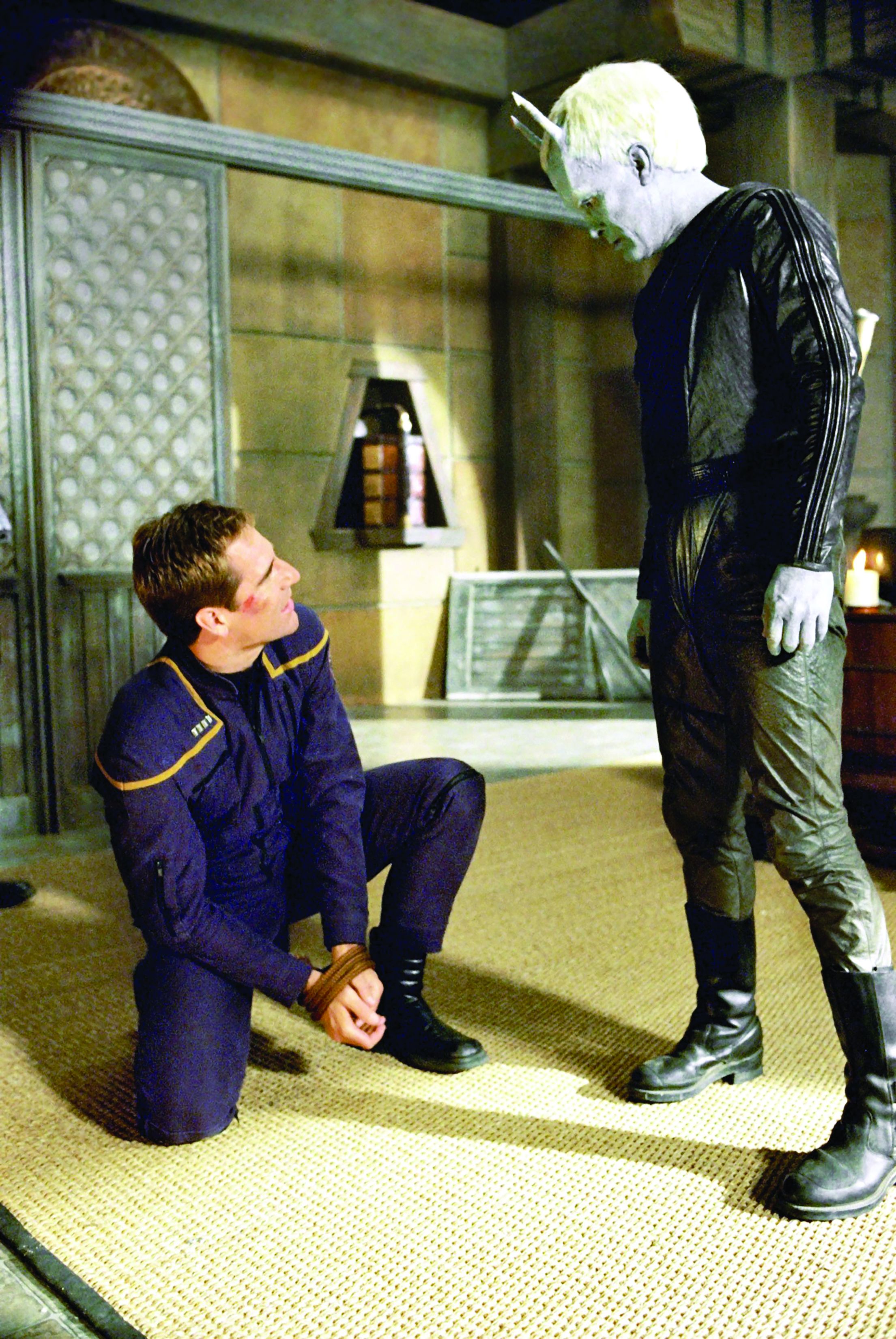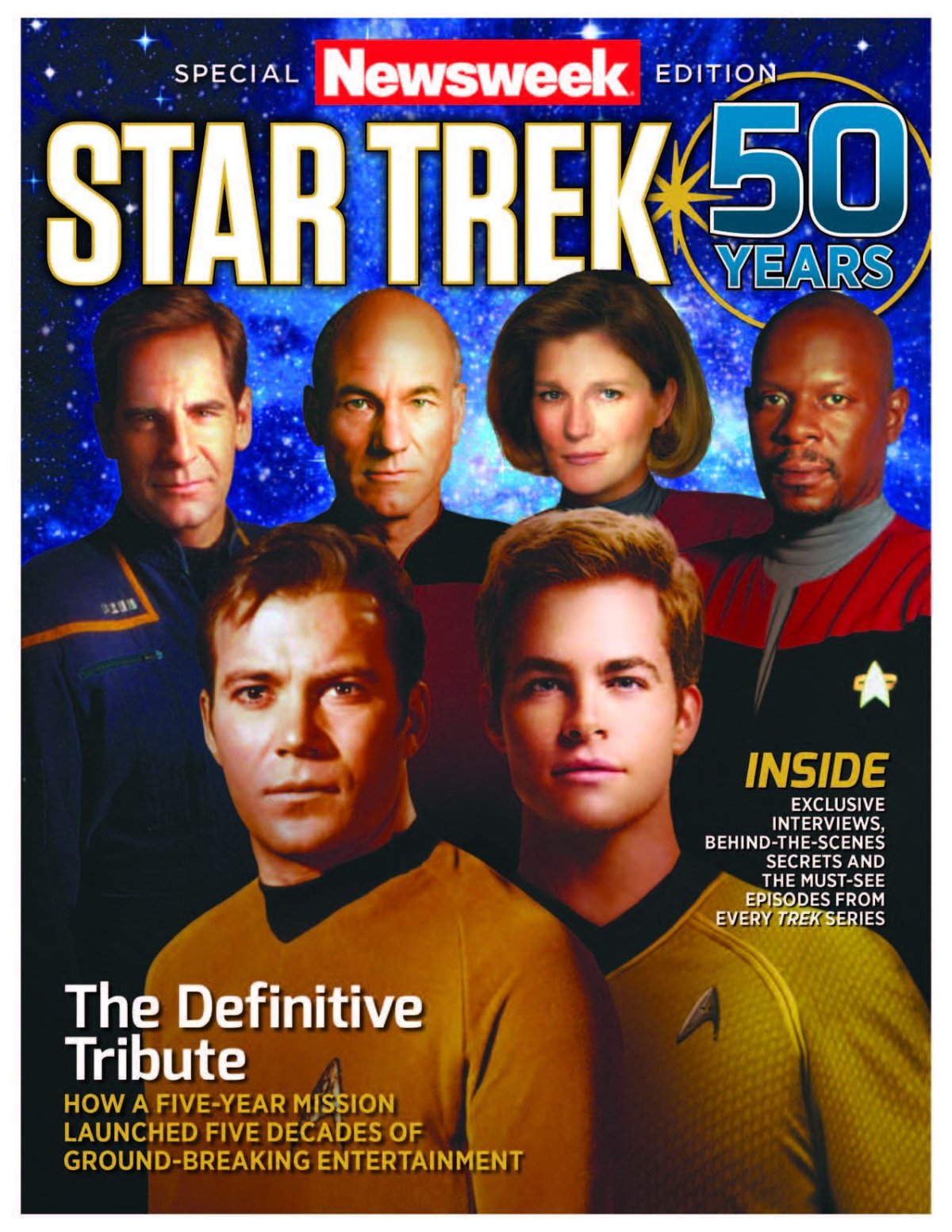
Star Trek: Enterprise started strong, lost some steam, then looked poised for a cult renaissance. This article is excepted from a Newsweek Special Edition, Star Trek—50 Years, by Issue Editor Tim Baker.
For the incarnation of Star Trek after Voyager, Producer Rick Berman and his team of sci-fi masterminds decided to go back in time, which is to say into the future, just less so than Trekkers might have been used to. Set a century before Kirk and Spock's famous five-year mission, the series showed men and women going where they truly had never been before: into deep space for the first time aboard the Enterprise NX-01, the grandfather to Kirk's starship.
Set as United Earth is just beginning to make itself a player in the galaxy, Enterprise follows the adventures of Captain Jonathan Archer and his crew of 83 as they navigate the murky new waters of alien politics. Their efforts, along with those of a memorable cast of ancillary and guest characters, culminate in the founding of the Federation of Planets—laying the cornerstone for the entire Star Trek universe from The Original Series to the J.J. Abrams reboot. Covering ground Trekkers had only heard about through the extended universe, Enterprise gave us a look at the human race before it had achieved the kind of perfection exemplified by Jean-Luc Picard and the rest of the squeaky-clean, always upstanding Next Generation crew.
In the show's pilot episode, "Broken Bow," Enterprise showed off what would become one of its most important devices: fleshing out the stories of Star Trek's most important historical moments. In this case, it was Earth's first contact with the Klingon Empire that got the full prequel treatment. A farmer named Richard Moore, as he ate a breakfast of biscuits and gravy, was disturbed by a crash on his property. A century after first contact with the Vulcans, most humans, including Moore, had never seen an alien. "I got my plasma rifle," Moore said. "Those monsters weren't going to use their brain-sucking weapons on me and take my land." With the Klingon's death, enmity between Earthling and Klingon began.
Similarly, the show ends as the United Federation of Planets finally makes Earth's galactic status official, uniting the planet entirely by forming a coalition with other worlds with similar ideals, chief among them being Vulcan, whose representative on the Enterprise, T'Pol, was instrumental in cementing Vulcan-Earth relations. But in the end, it was exactly this tendency of Enterprise to fill in the blanks in Star Trek's extended history that ended up costing the series its television run.
By far the most polarizing property in the Star Trek canon, Enterprise struggled to maintain the millions of viewers who tuned in to UPN for "Broken Bow." By the second season, cancellation rumors seemed to plague the show. Lukewarm critical reception and a general fatigue in the pop culture universe with the idea of prequels after the fallout caused by Star Wars Episodes I–III had doomed Enterprise, but with the buffer of time these factors seem irrelevant. Growing cult status surrounding the birth of the Federation and the characters of Archer and T'Pol are making Enterprise less of a pariah with each passing, TV-Trek-less year.
This article is excerpted from a Newsweek Special Edition, Star Trek—50 Years, by Issue Editor Tim Baker.

Uncommon Knowledge
Newsweek is committed to challenging conventional wisdom and finding connections in the search for common ground.
Newsweek is committed to challenging conventional wisdom and finding connections in the search for common ground.
About the writer
To read how Newsweek uses AI as a newsroom tool, Click here.








